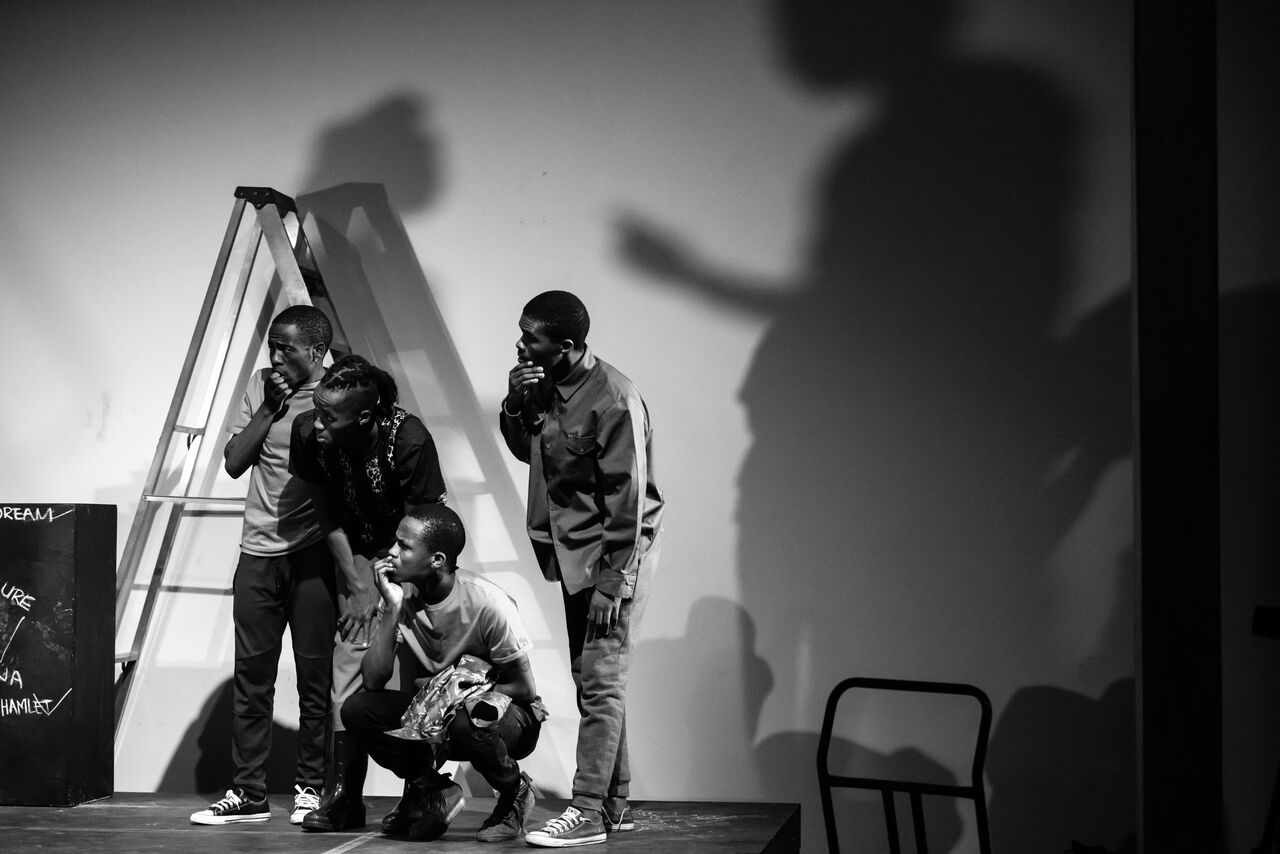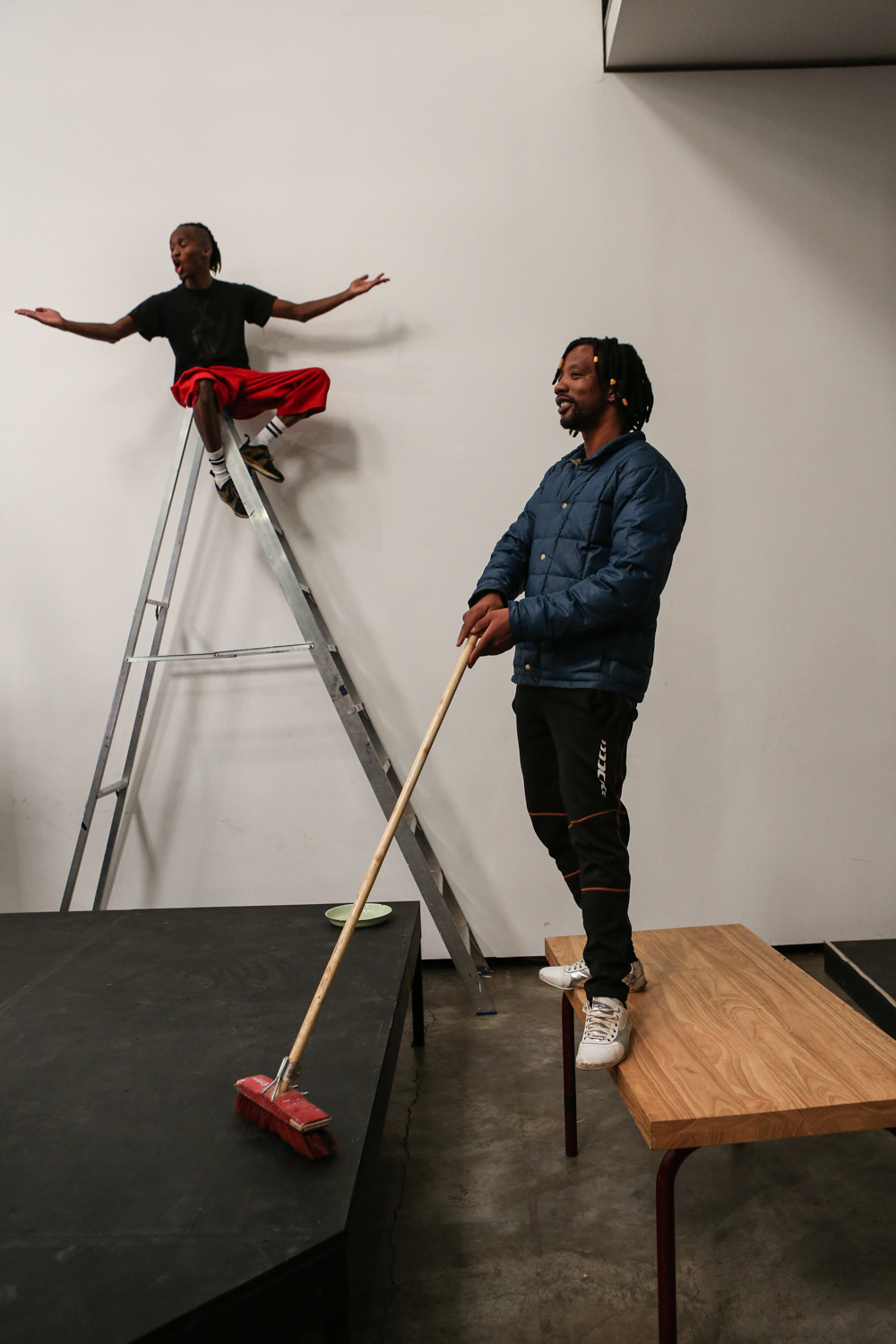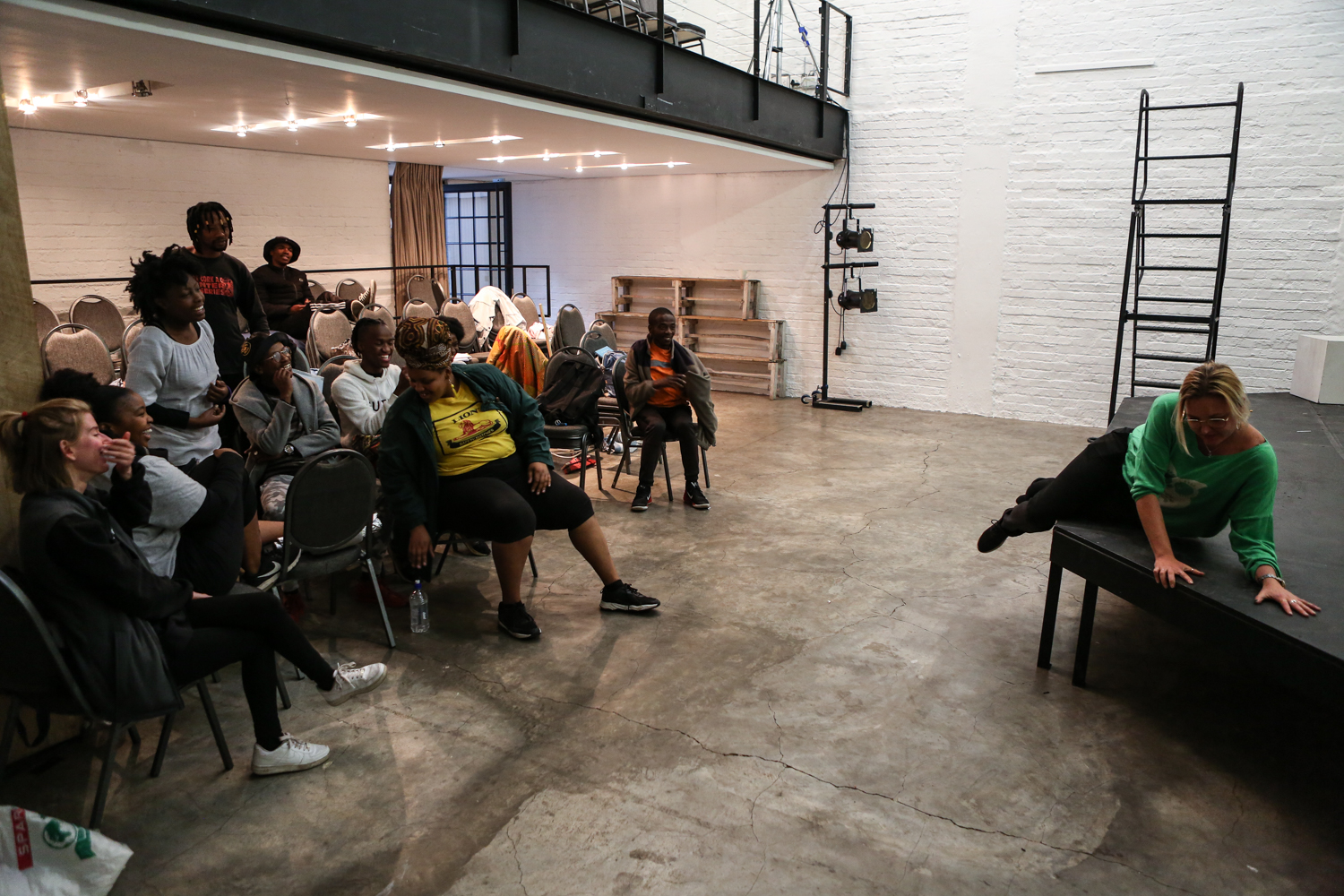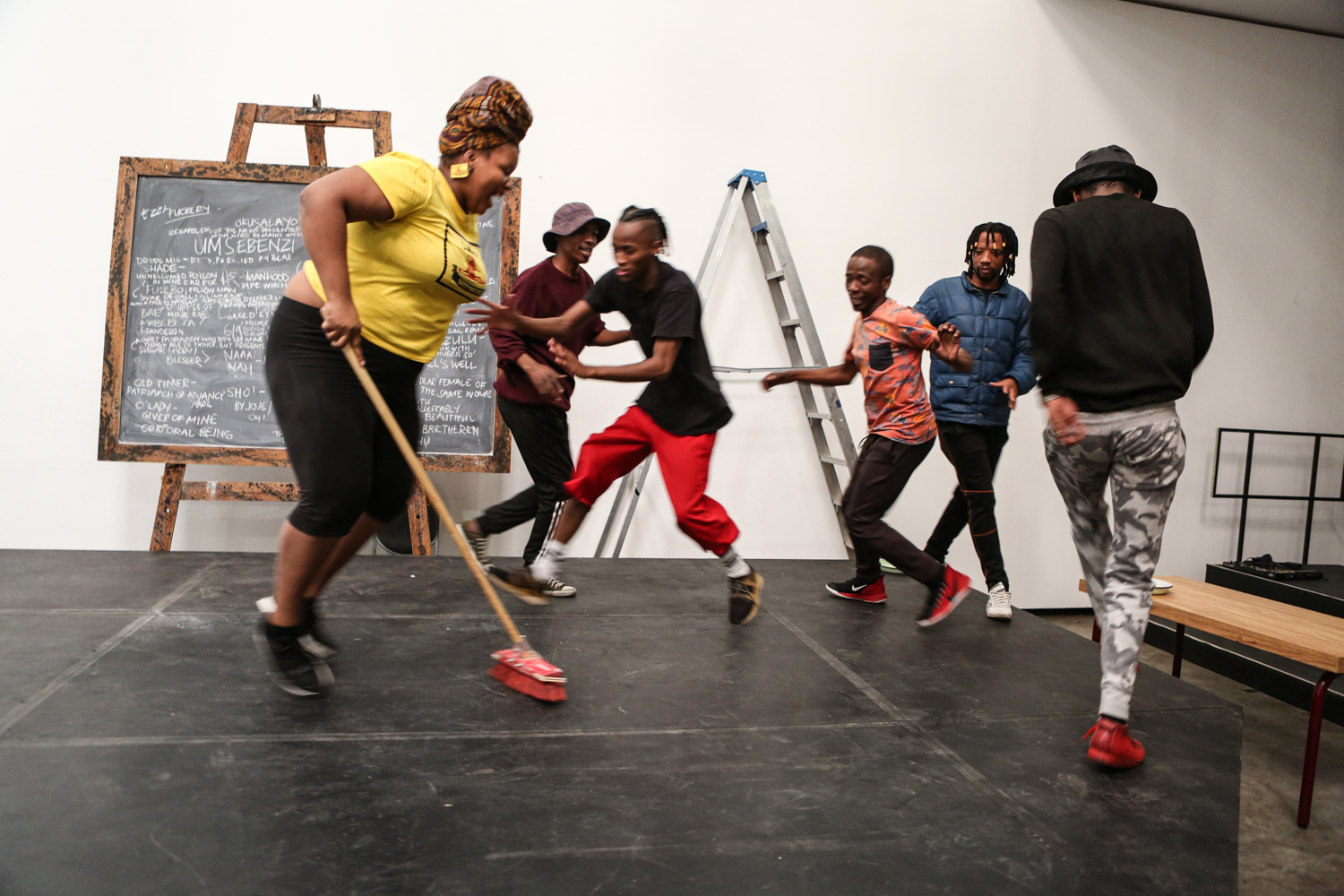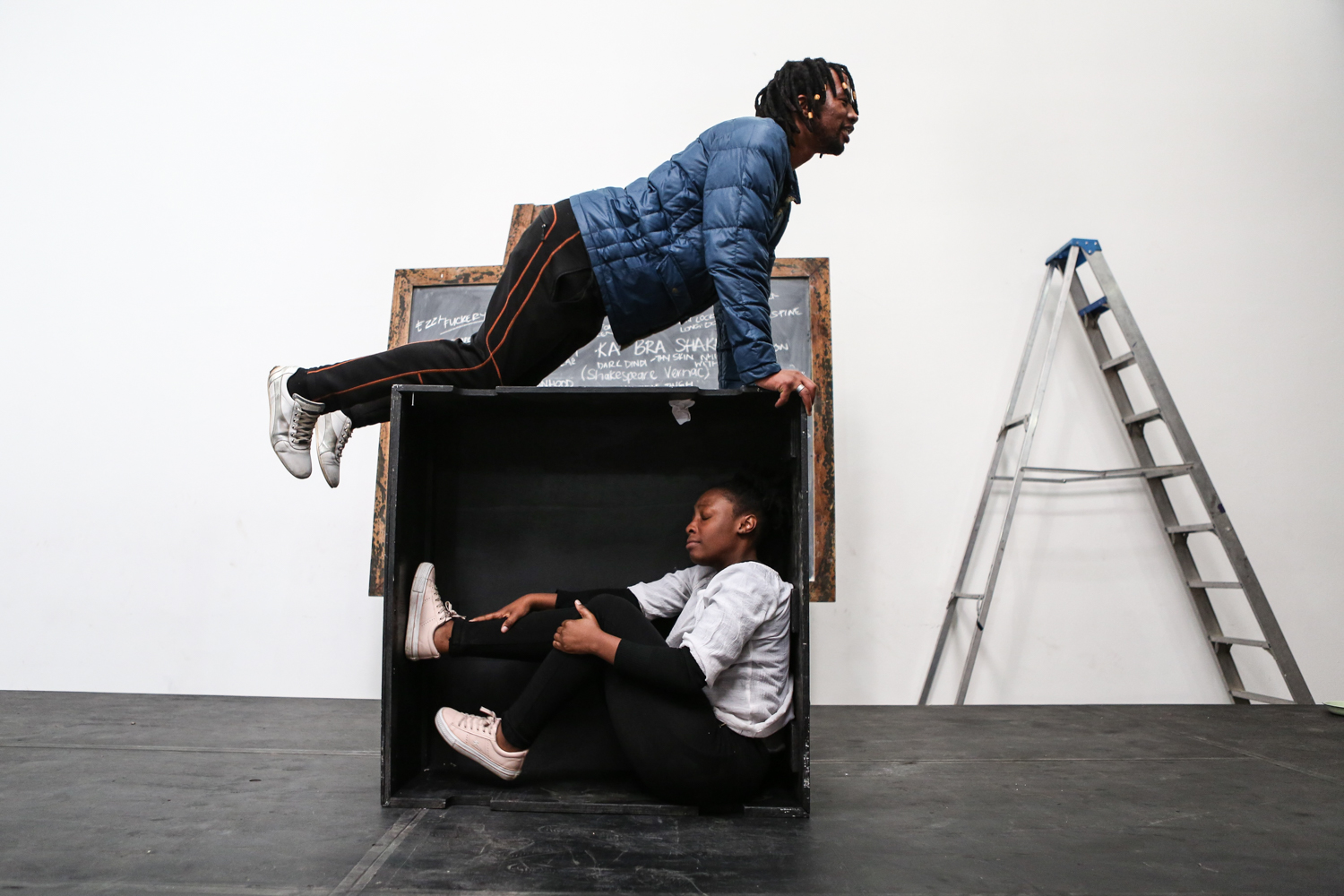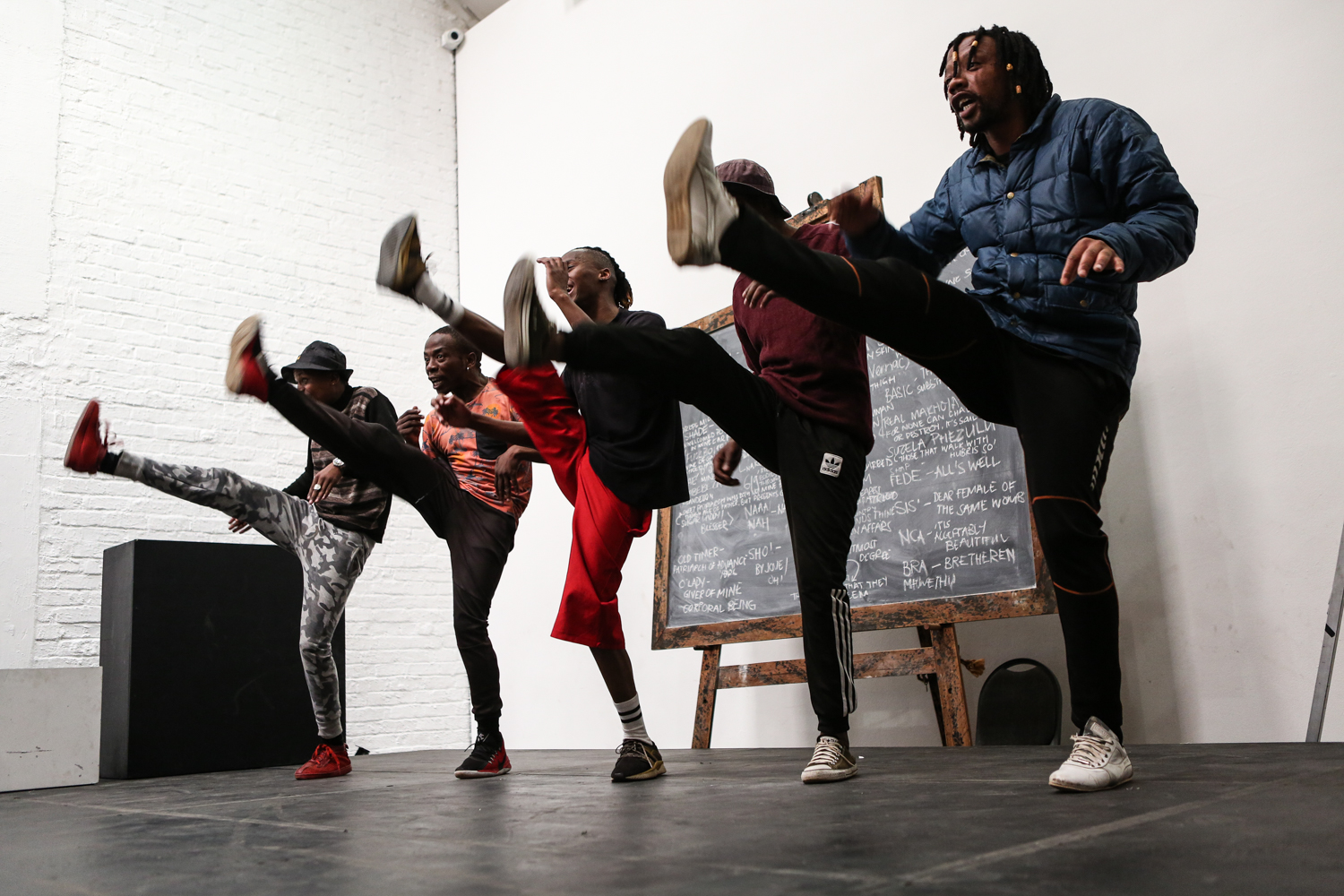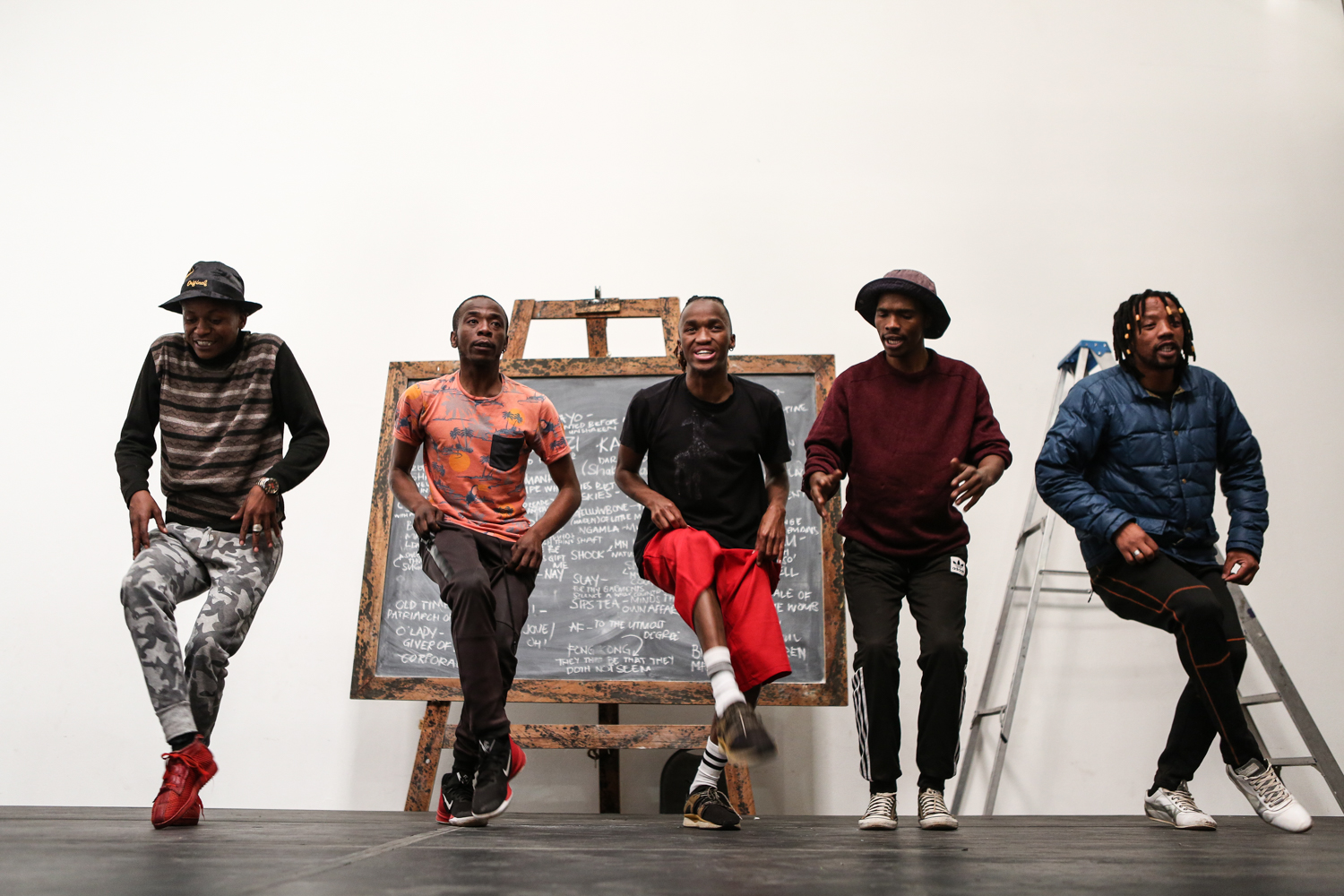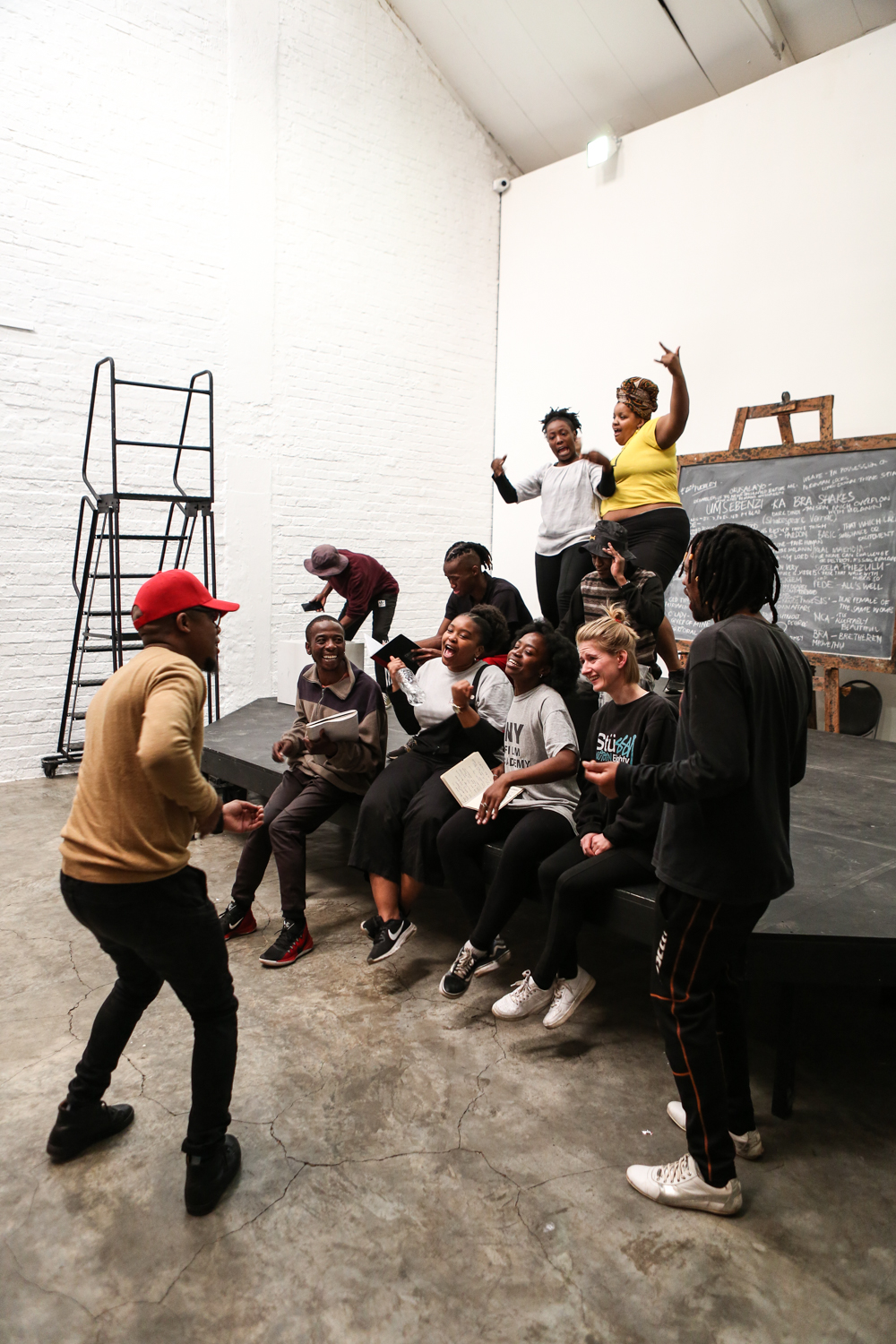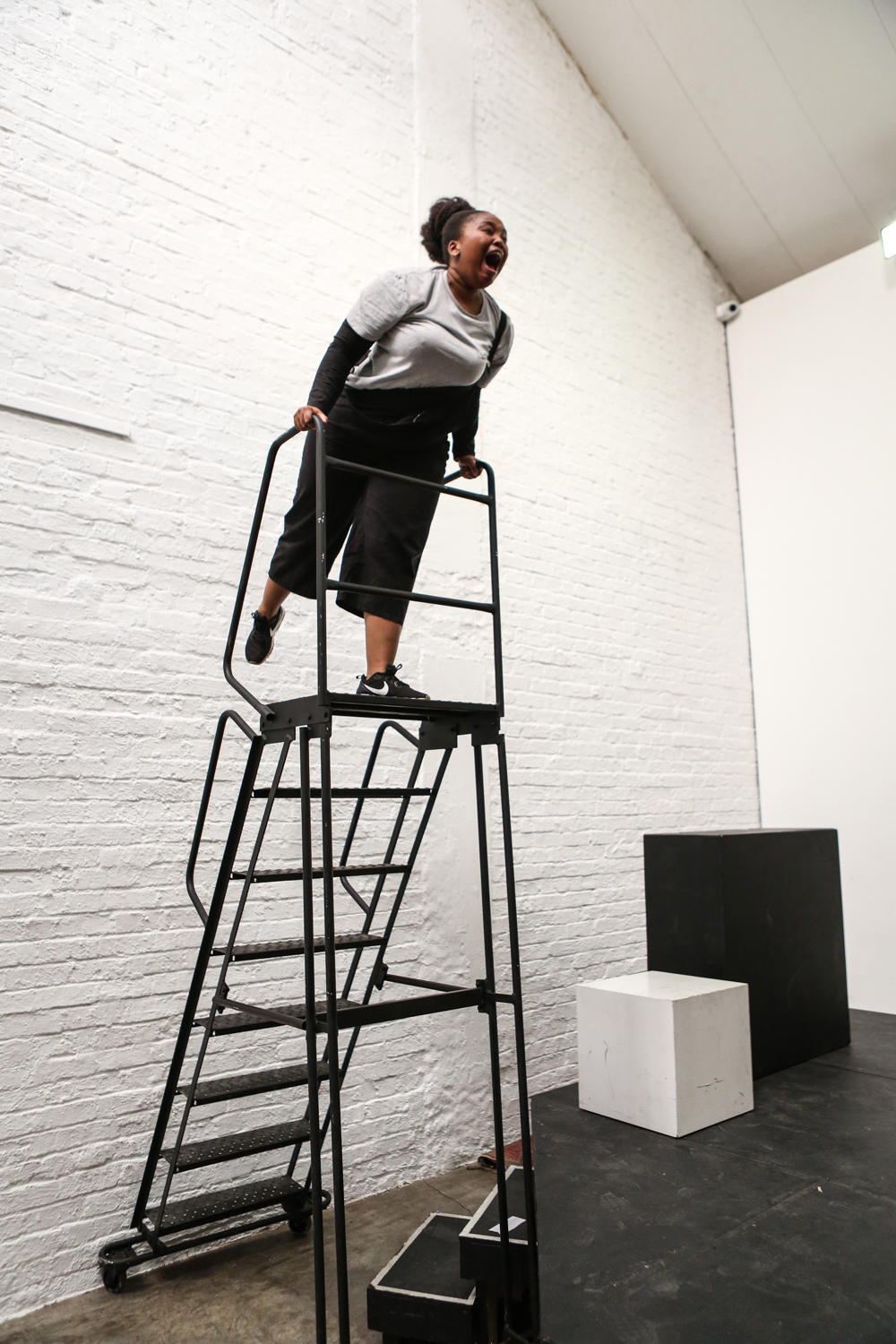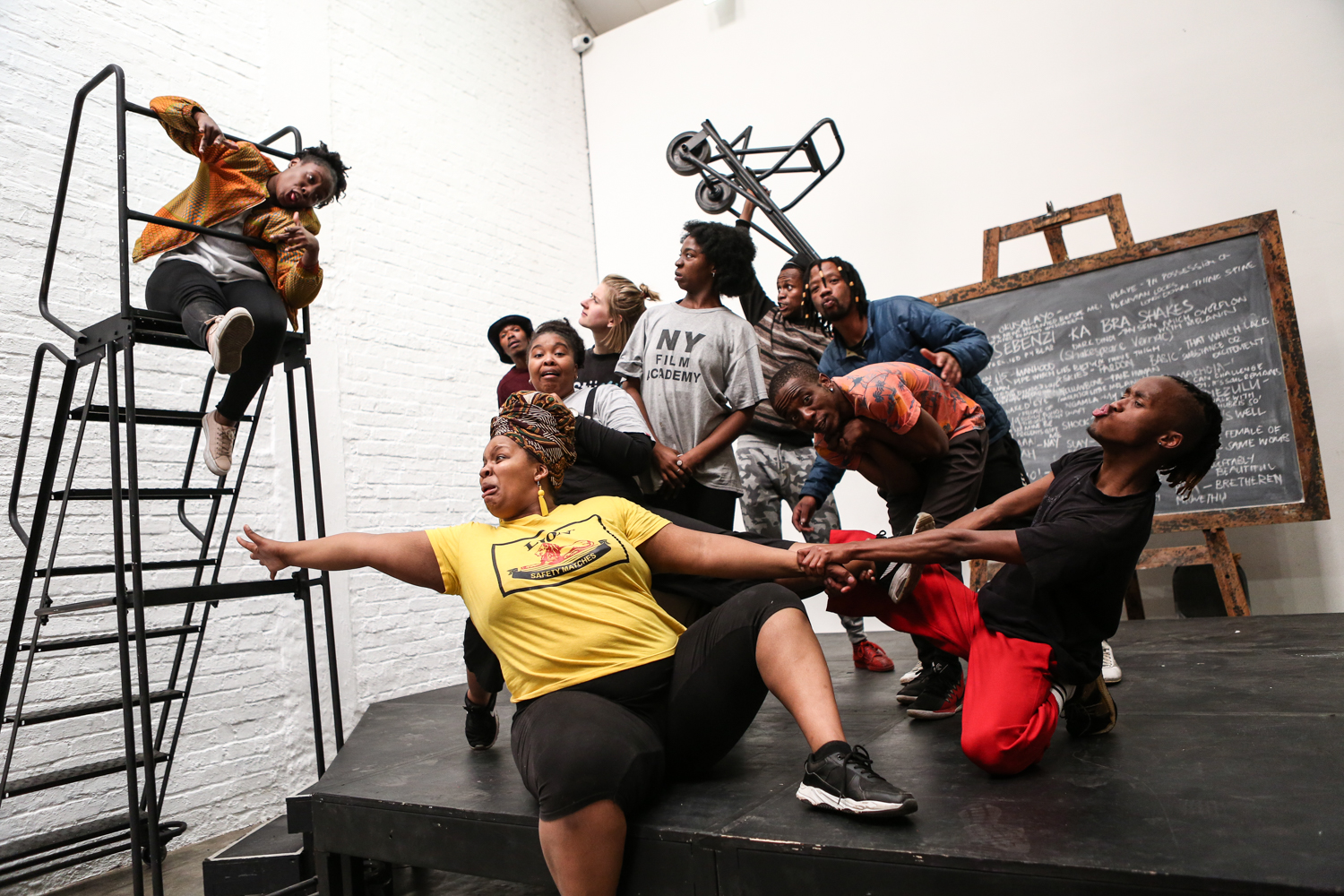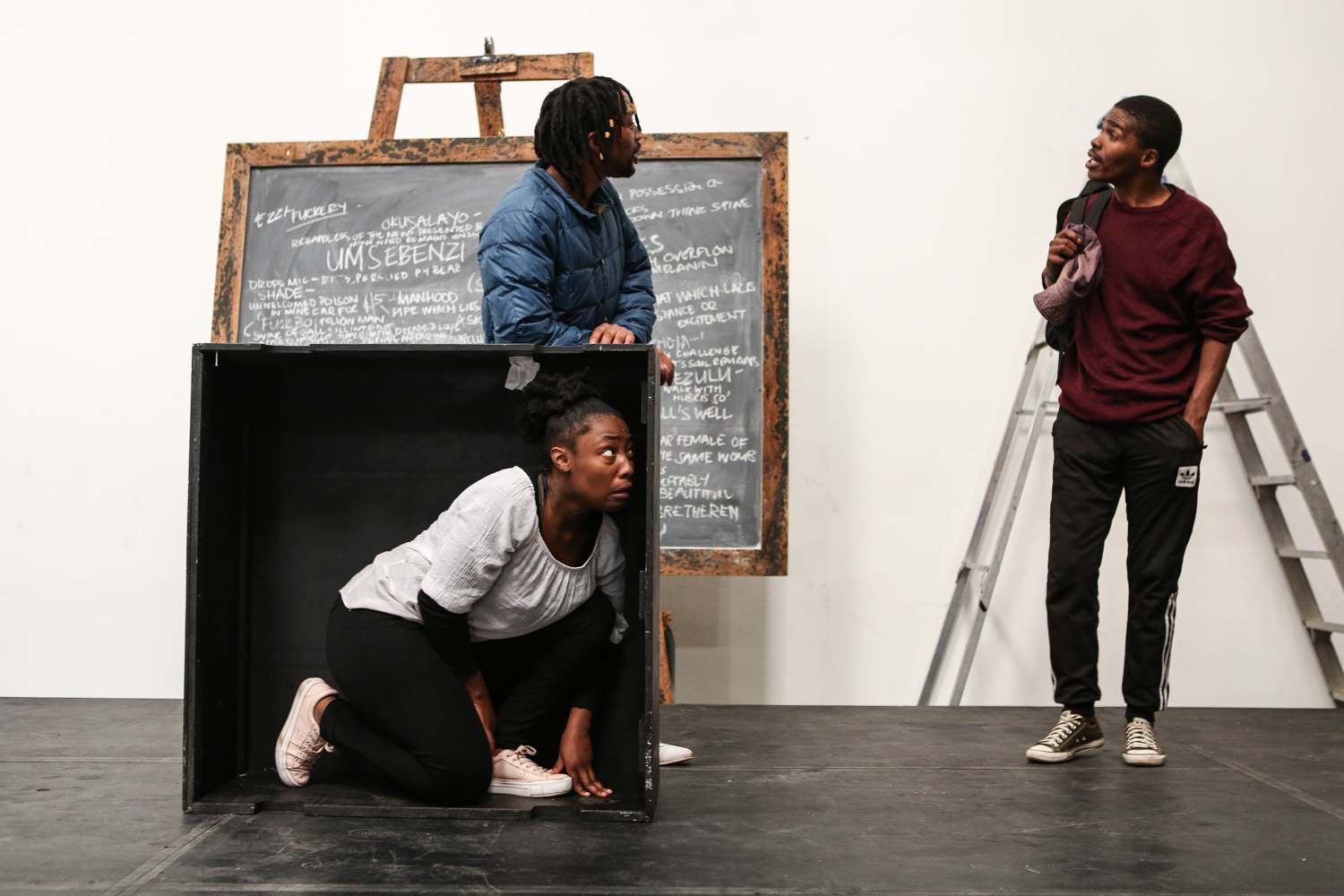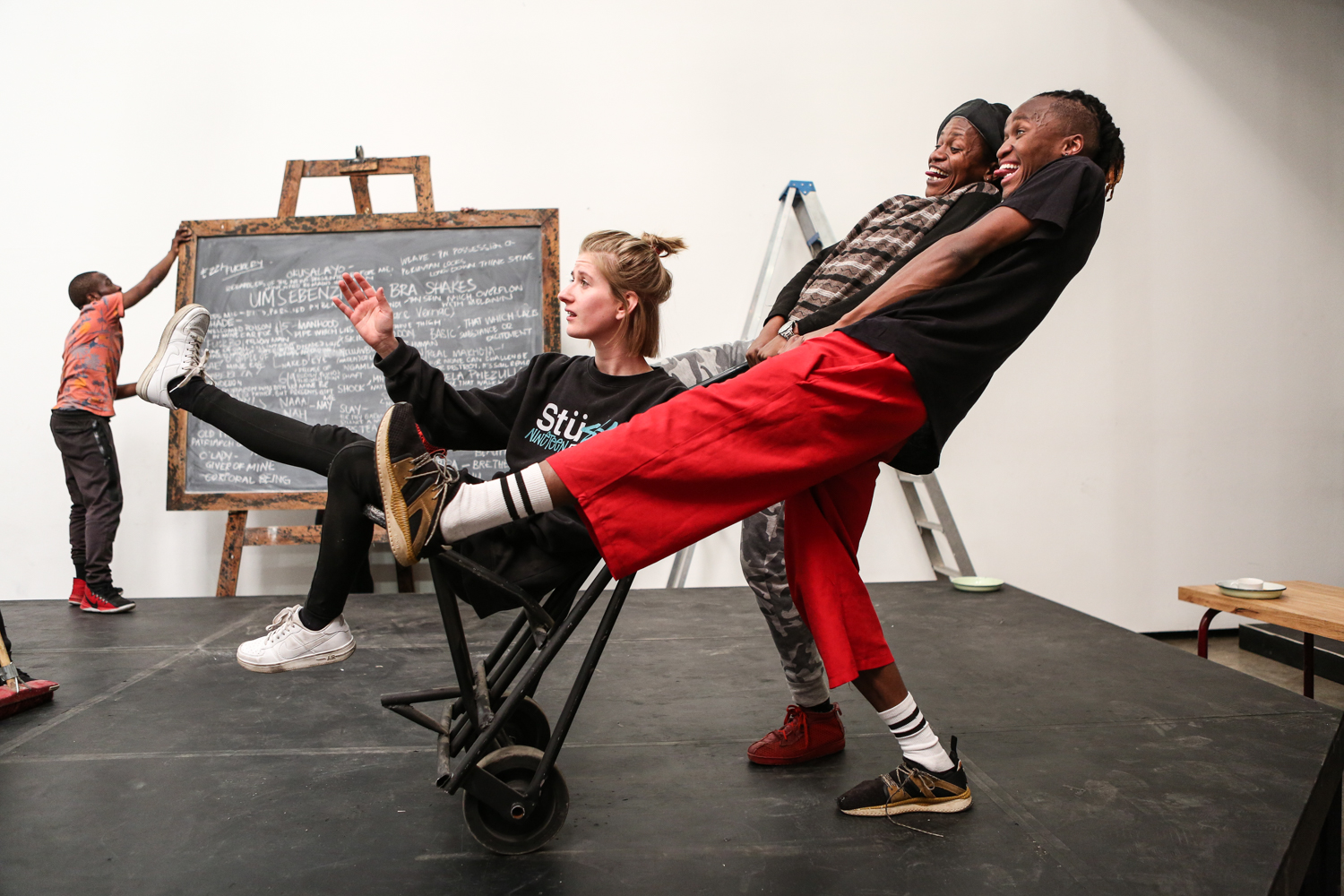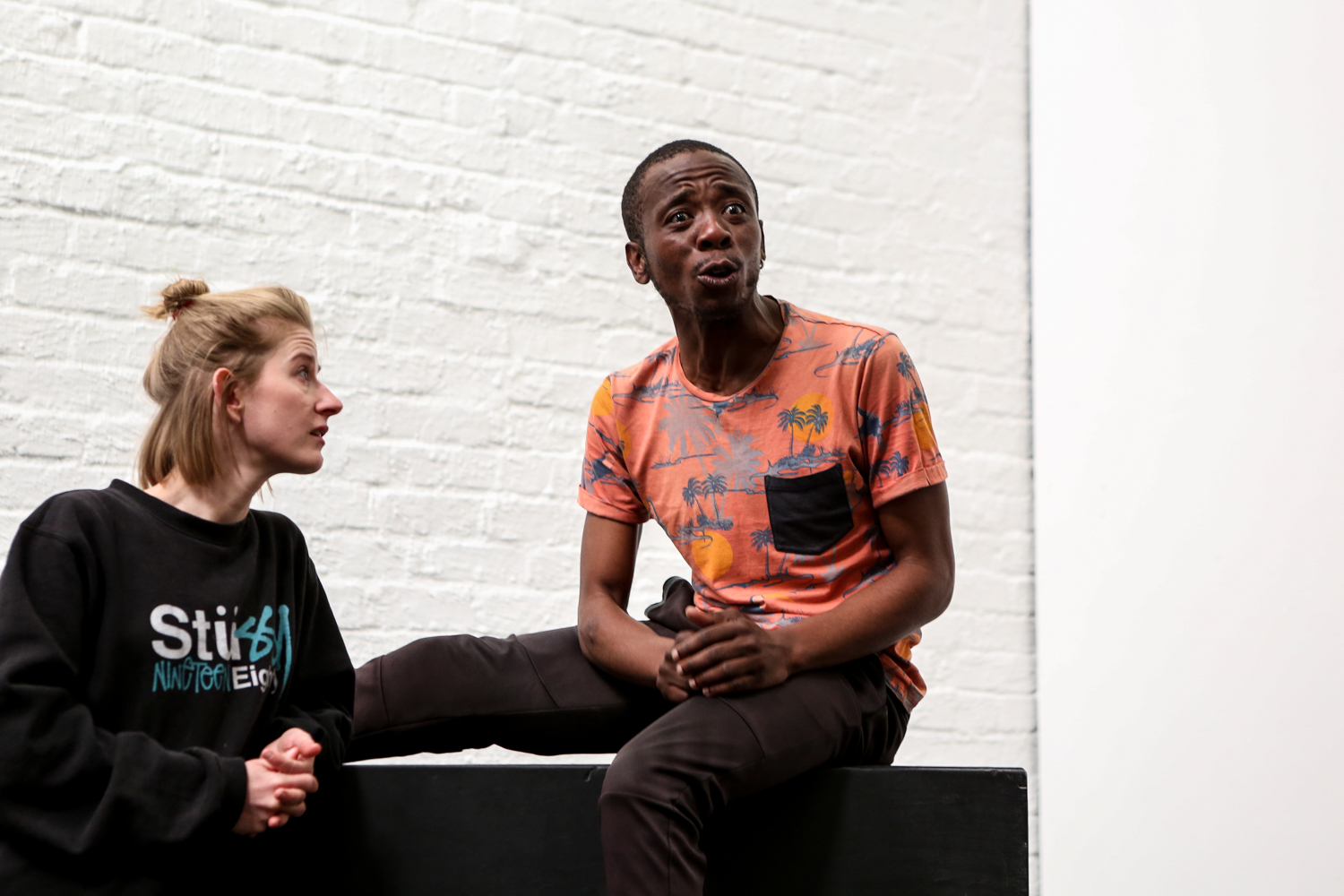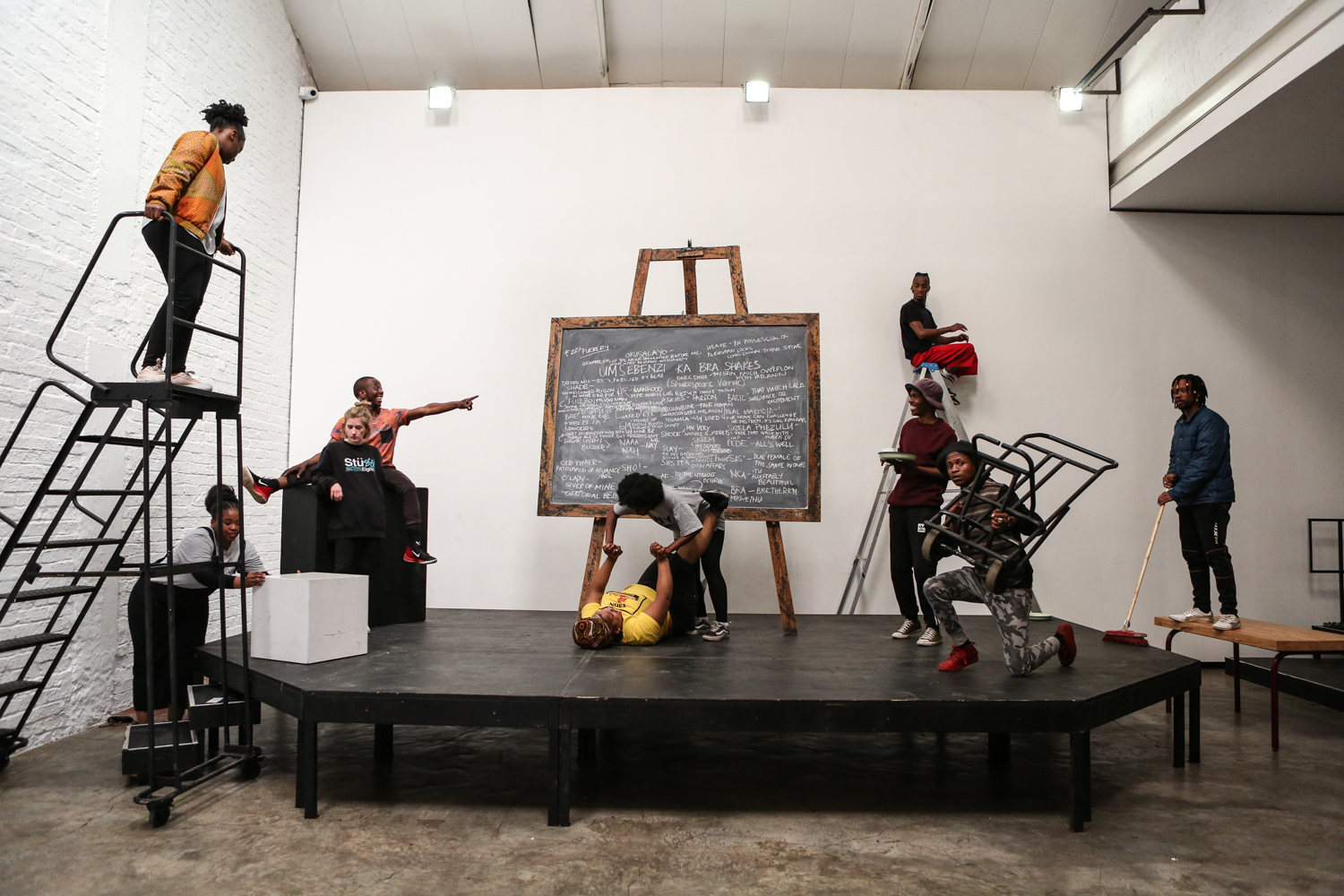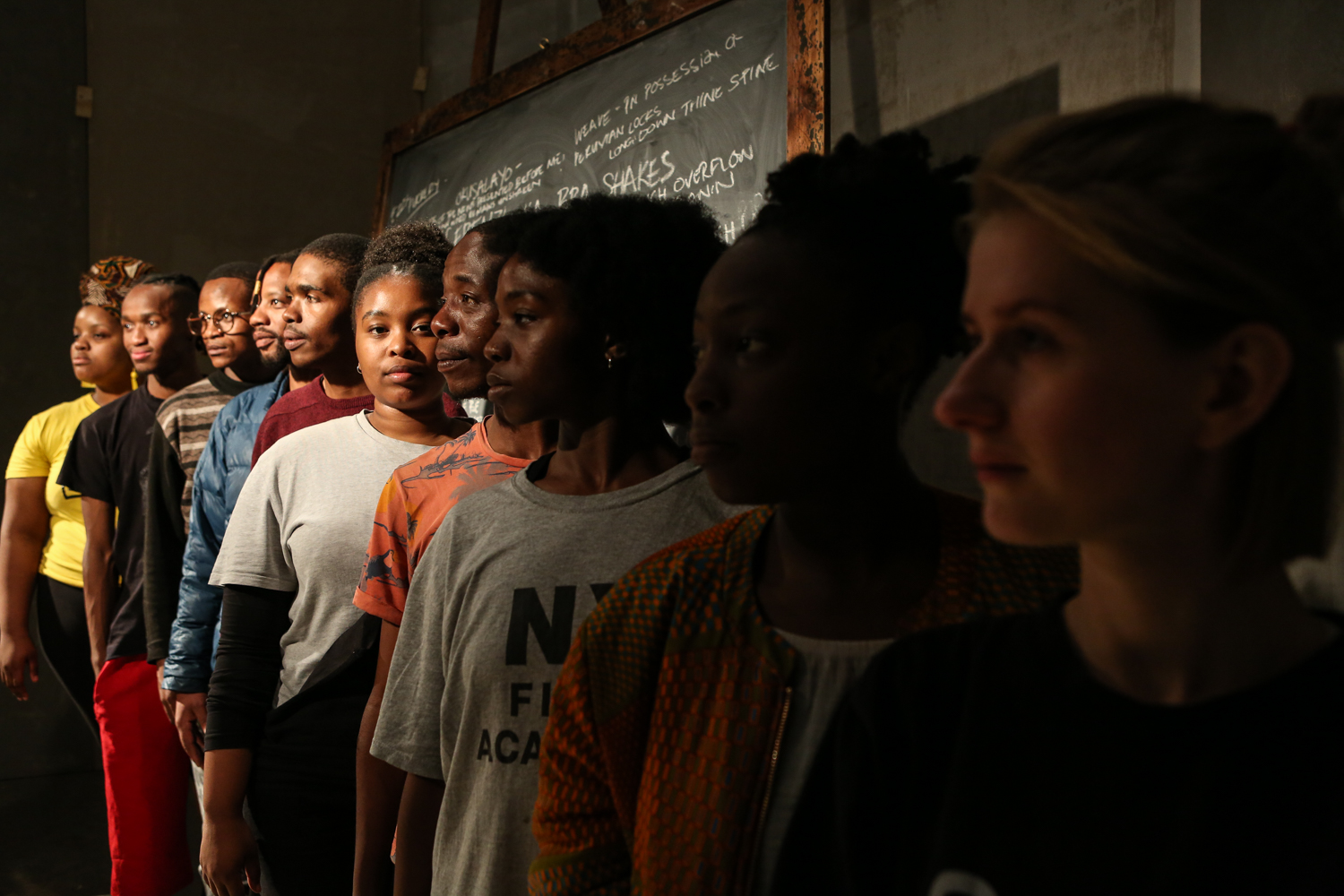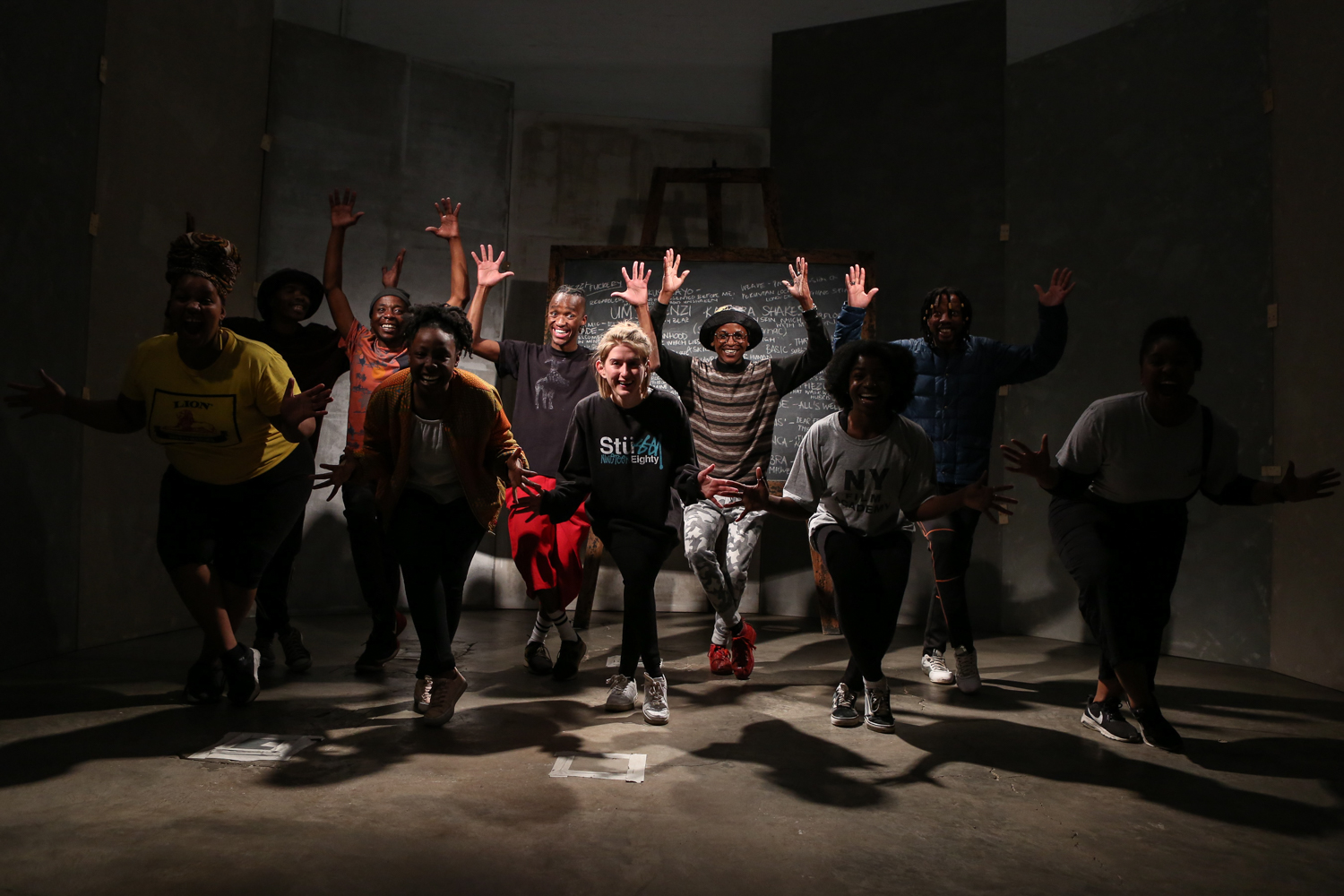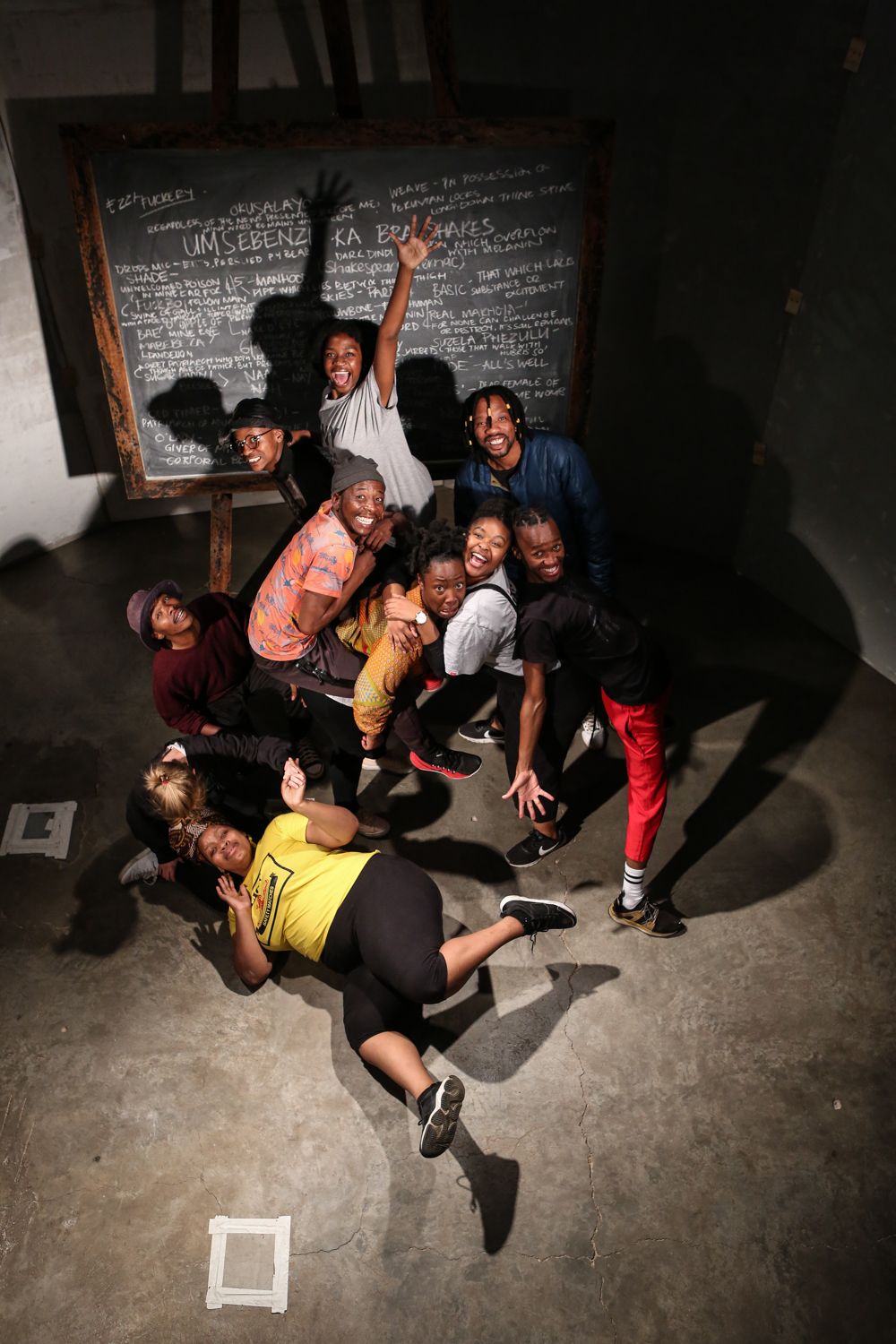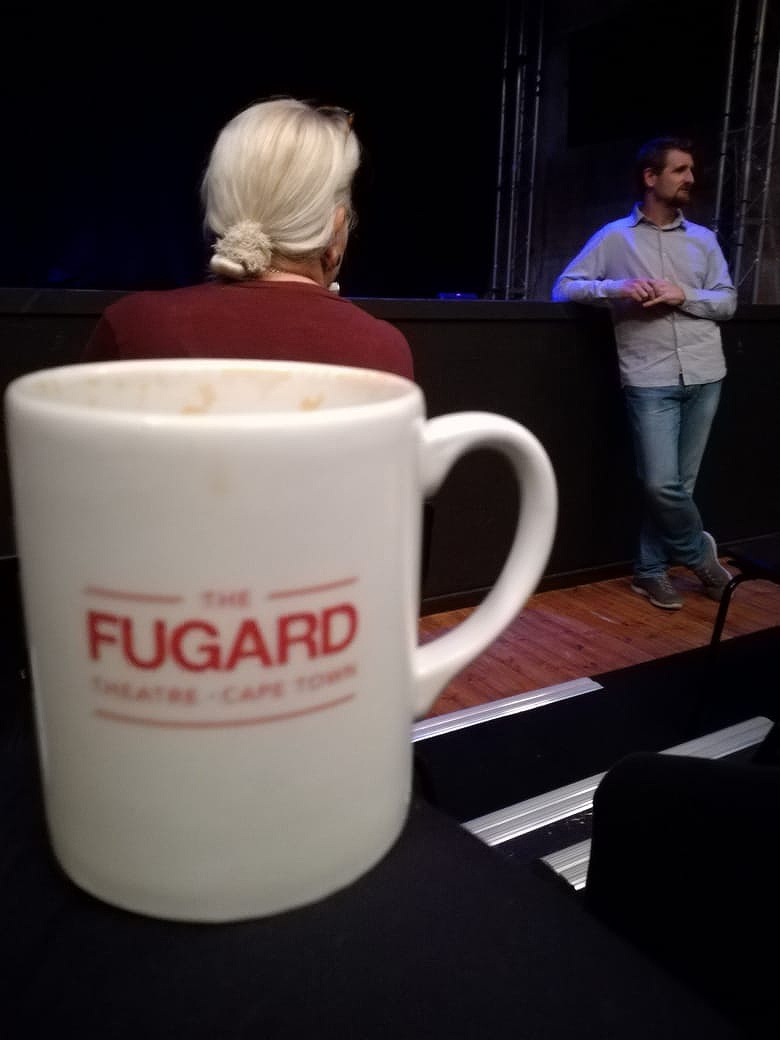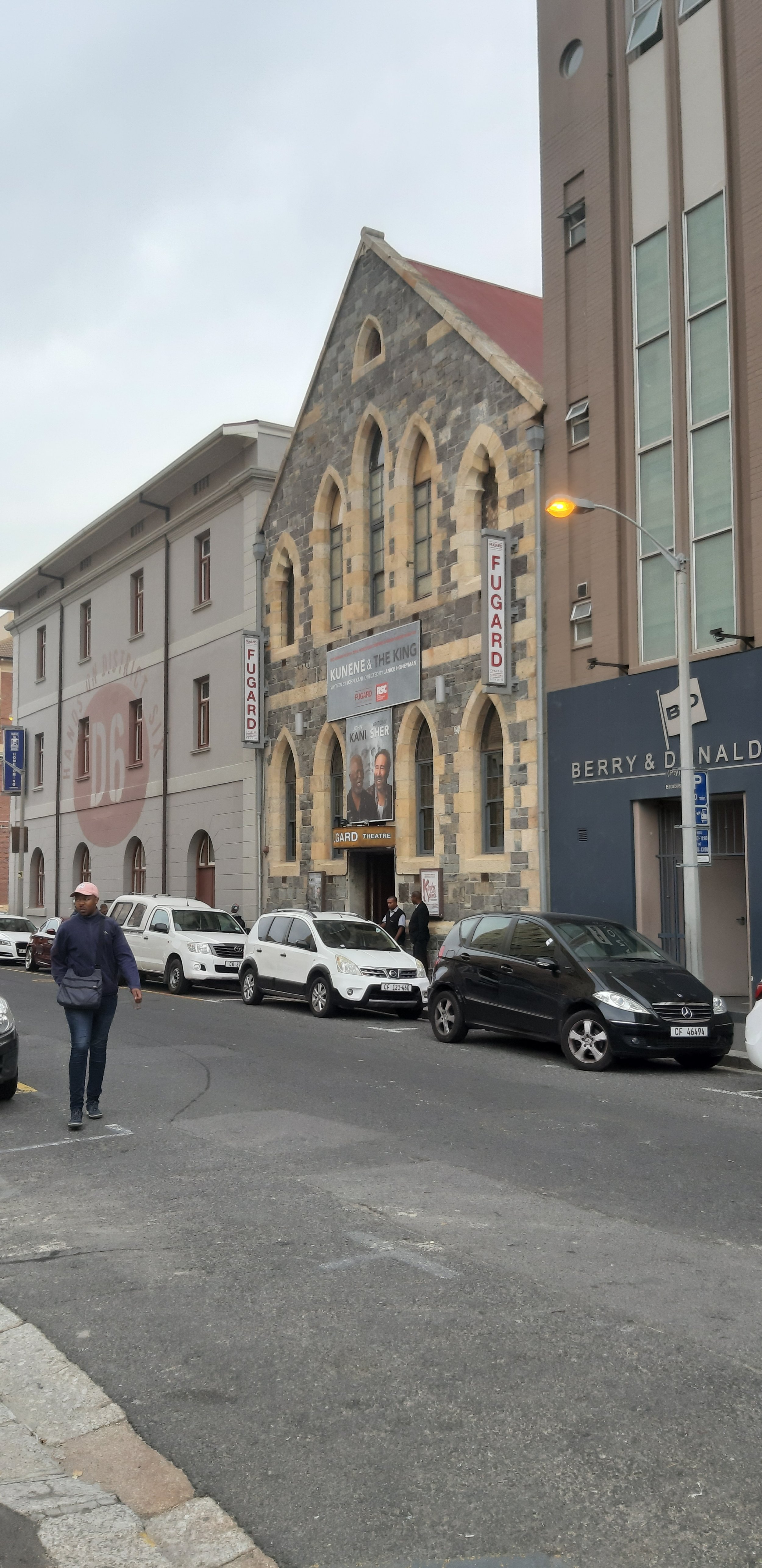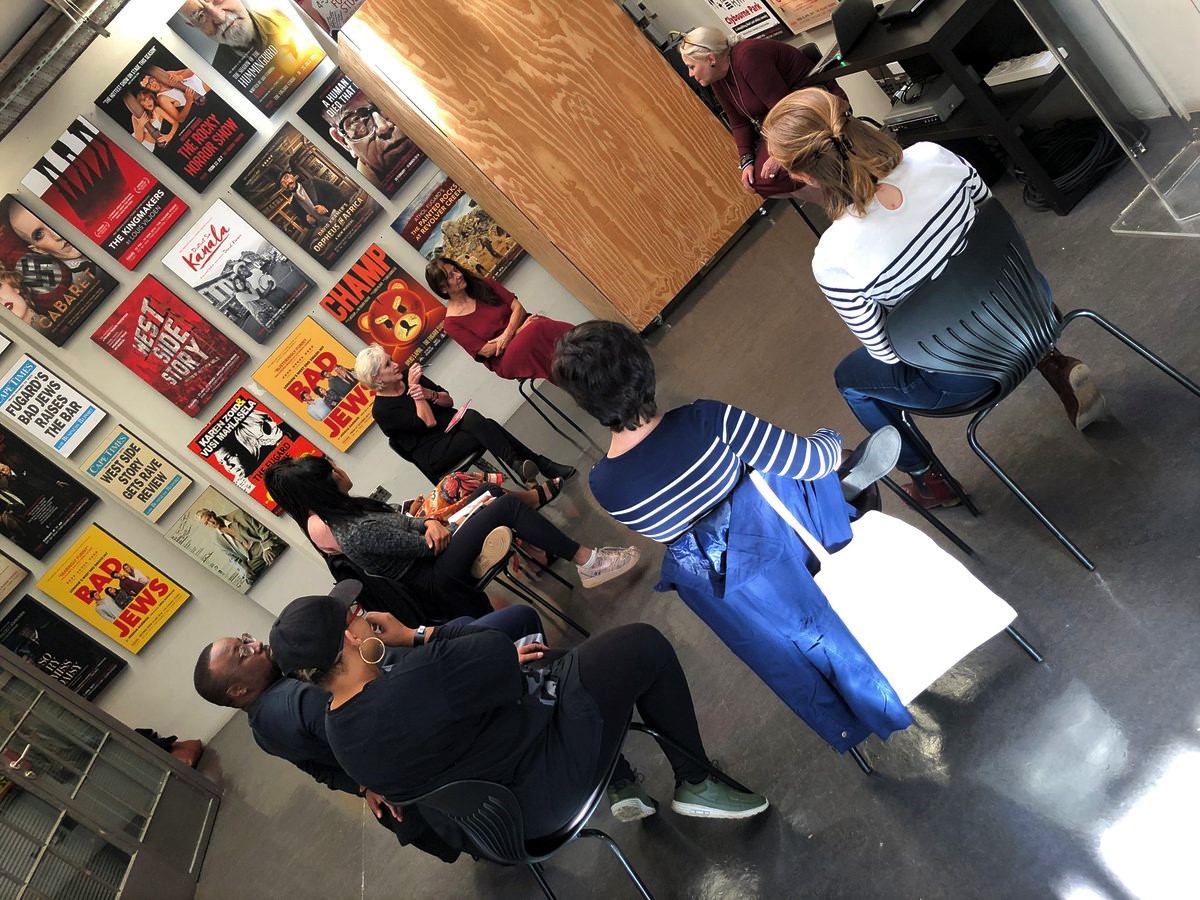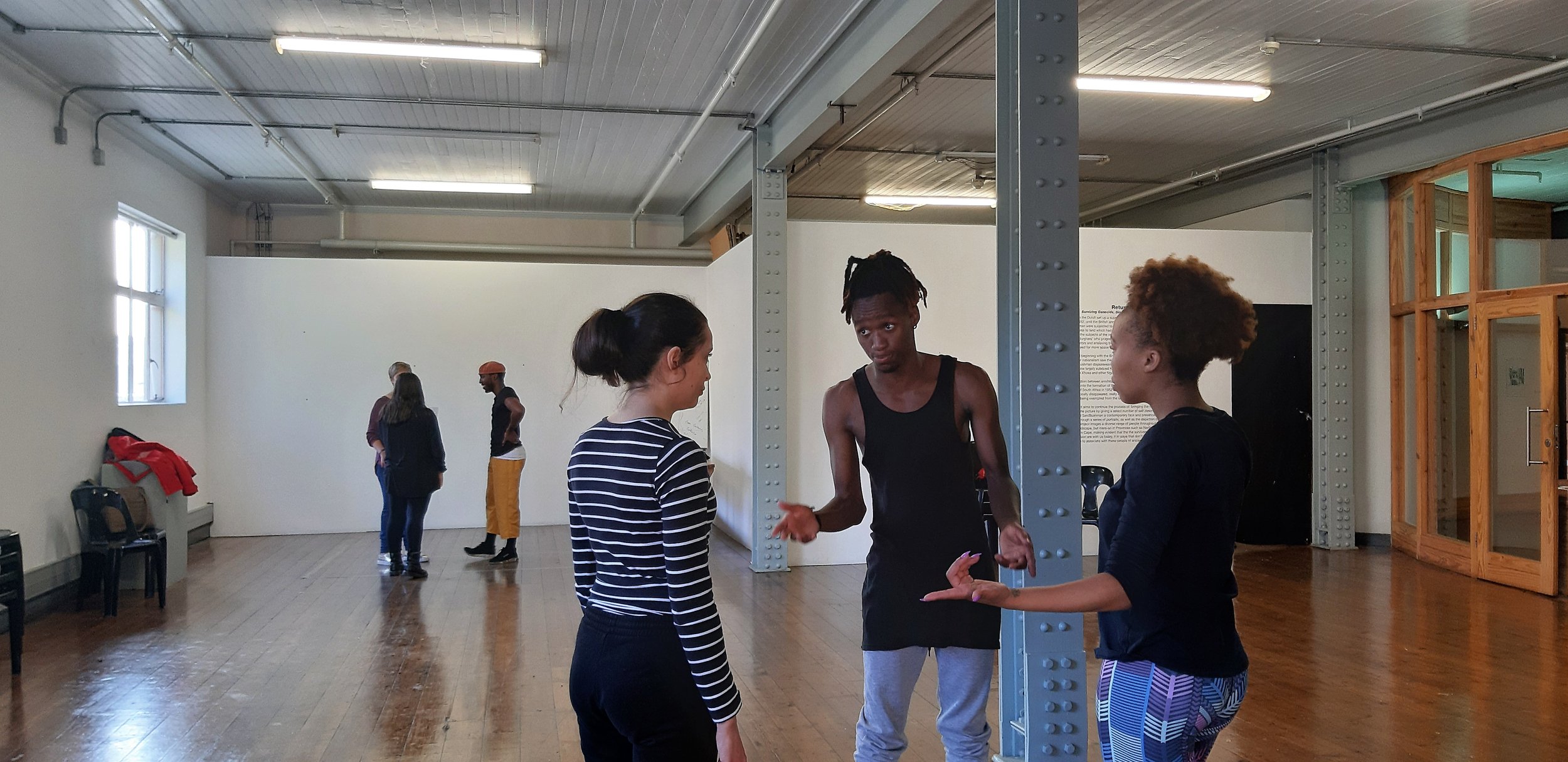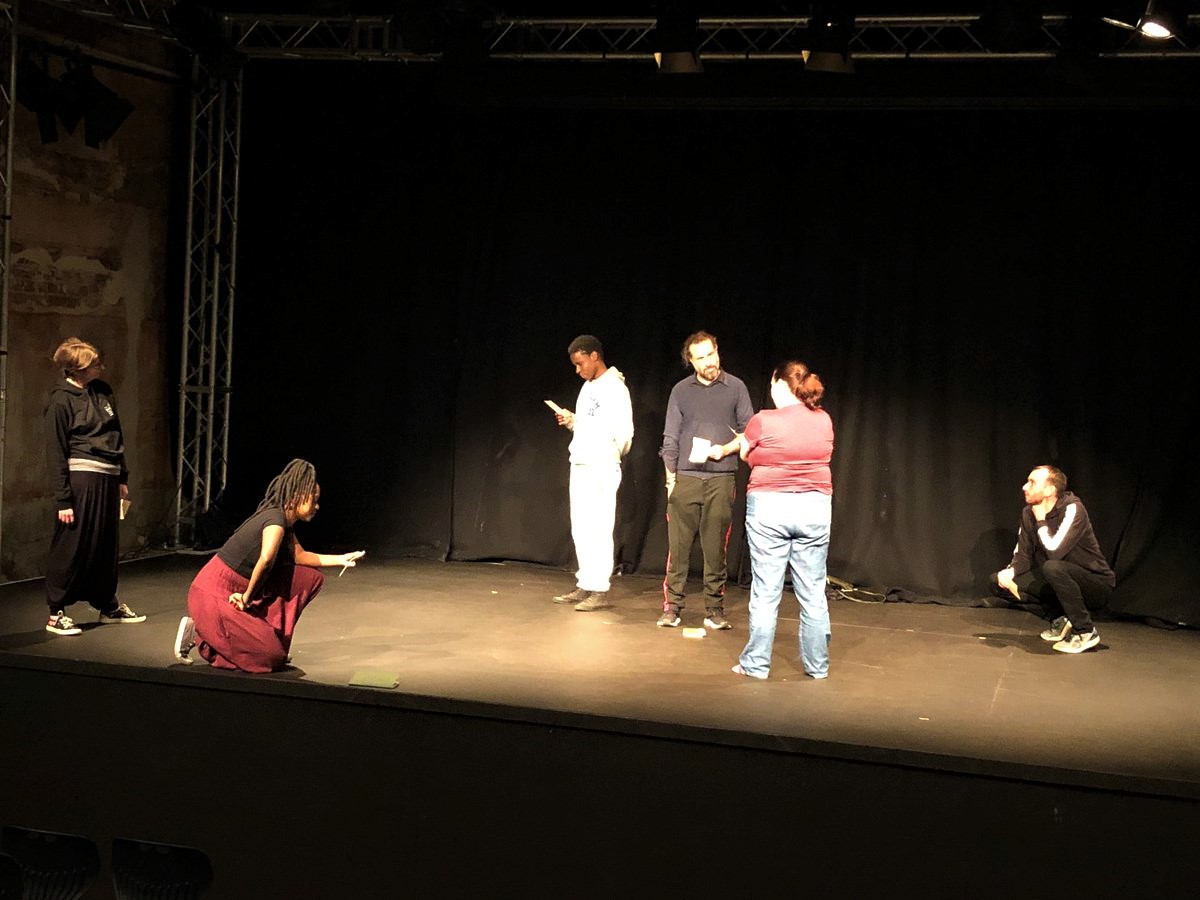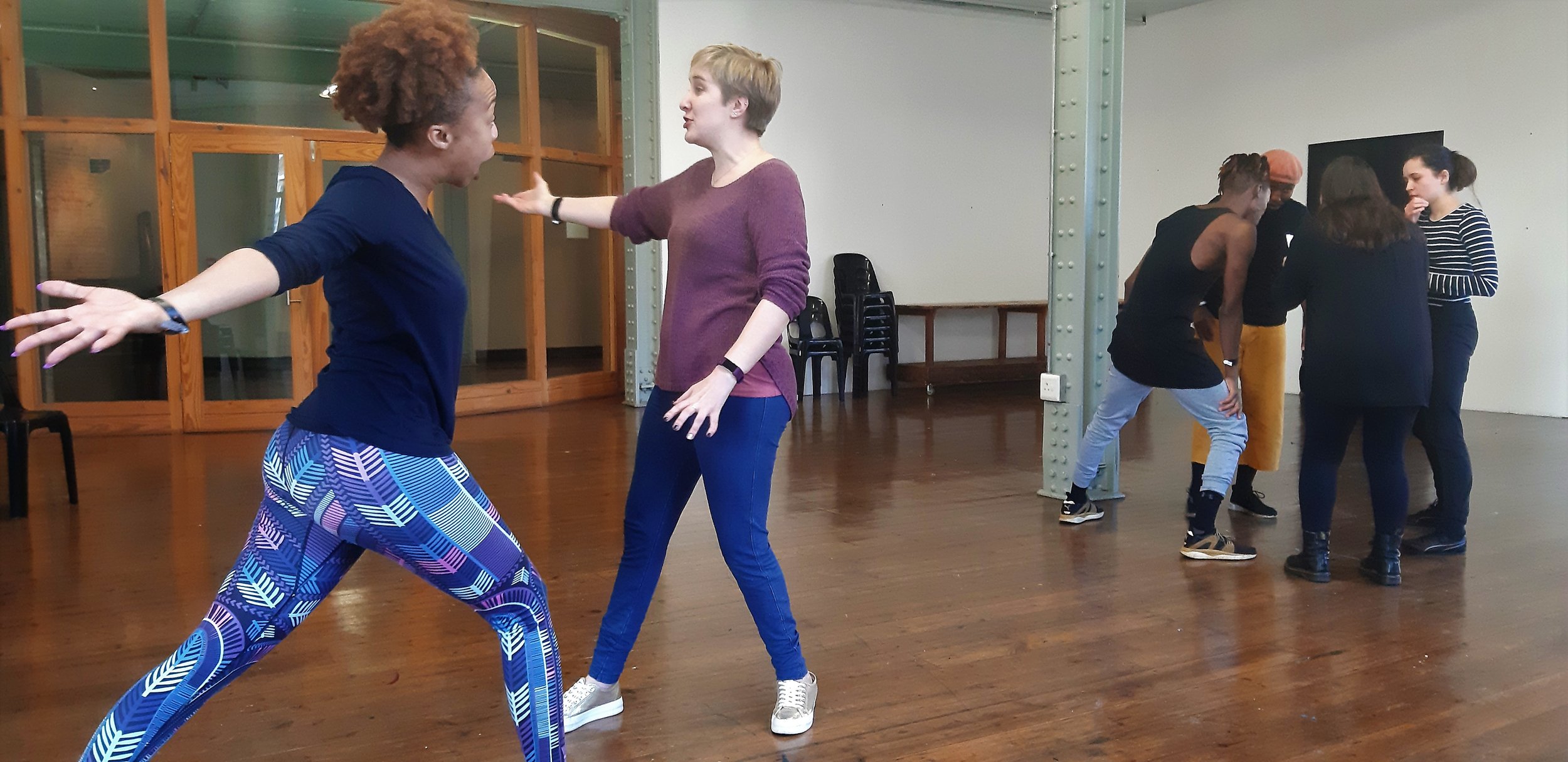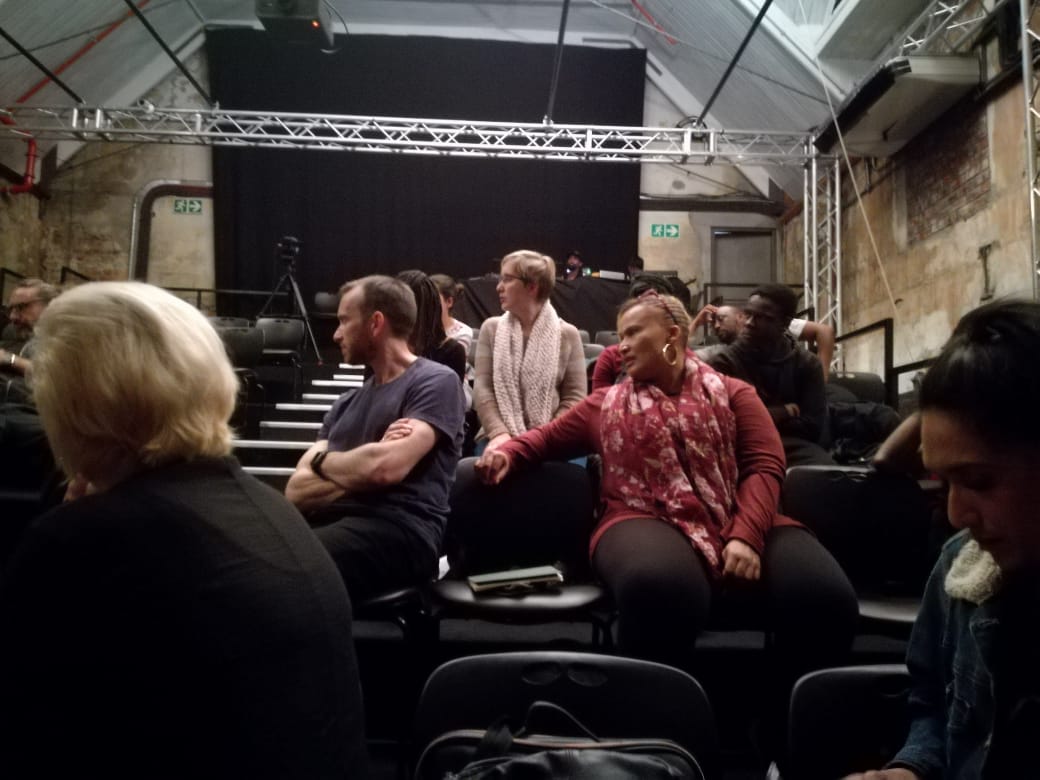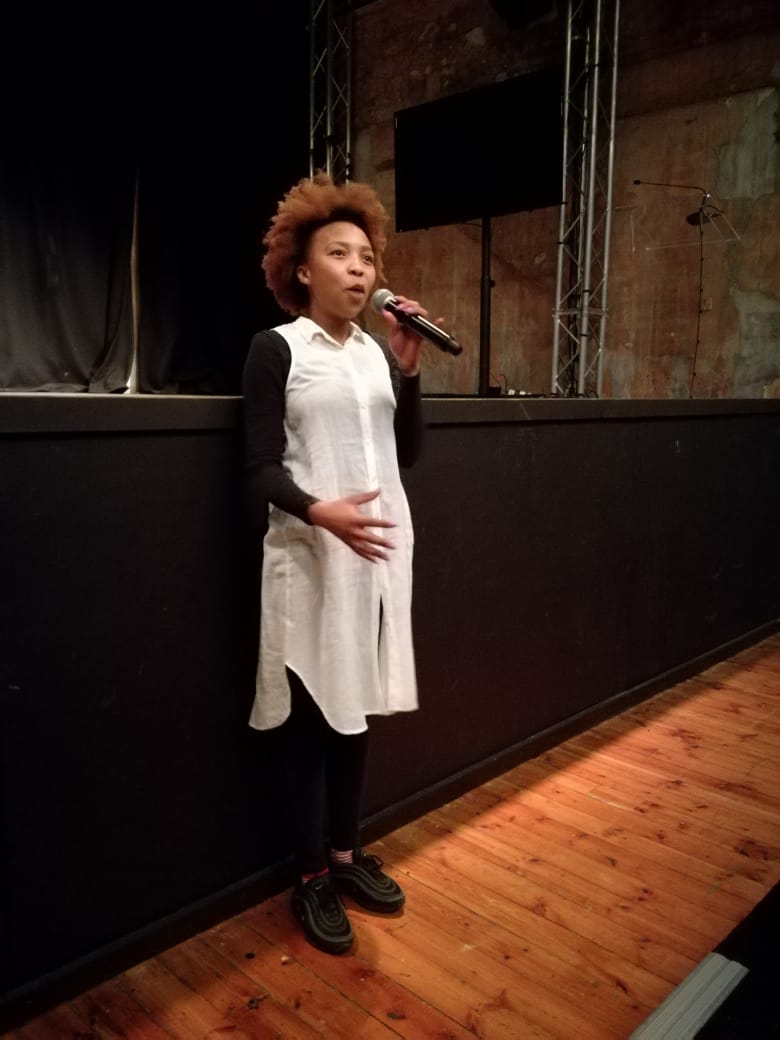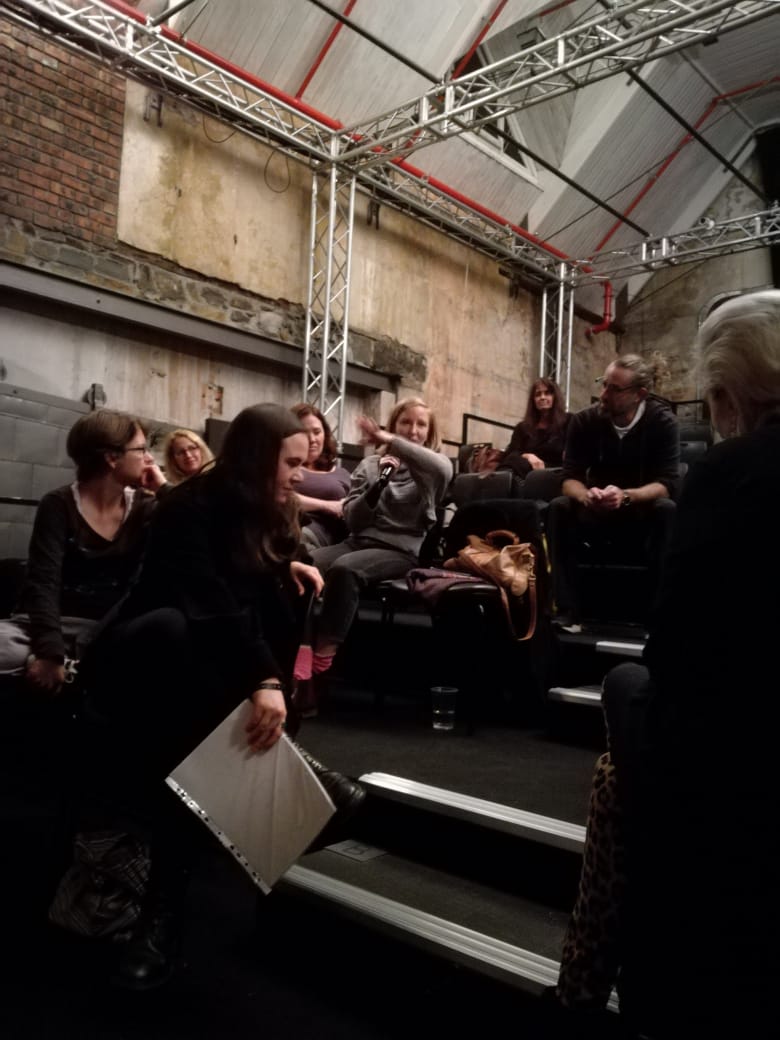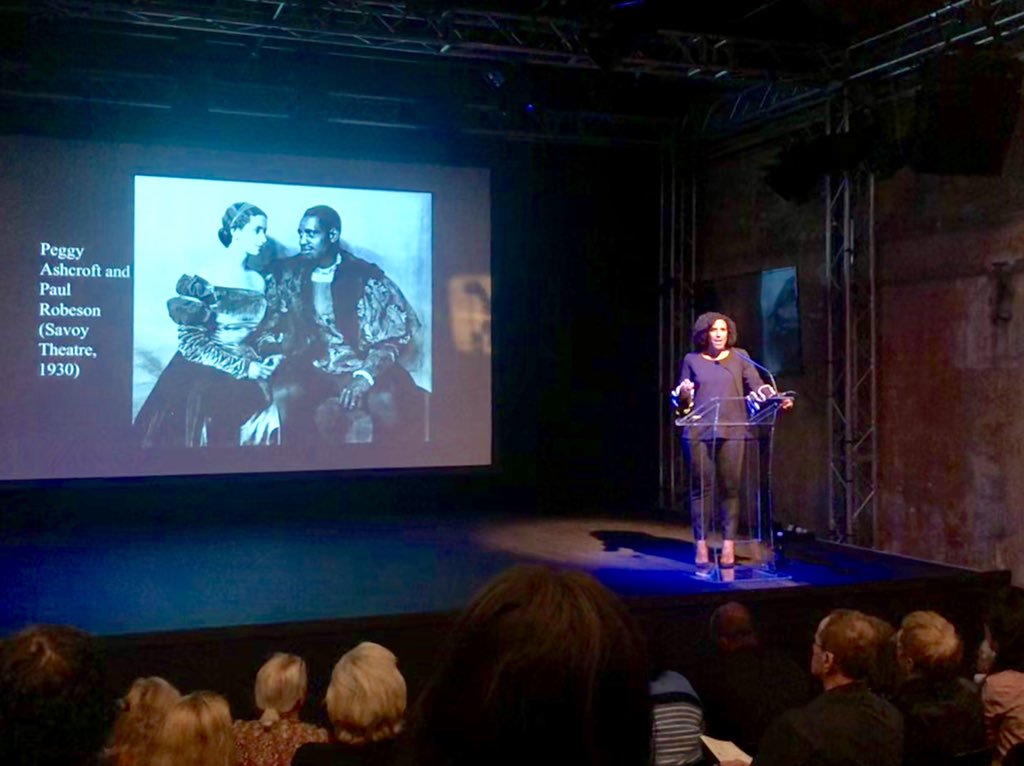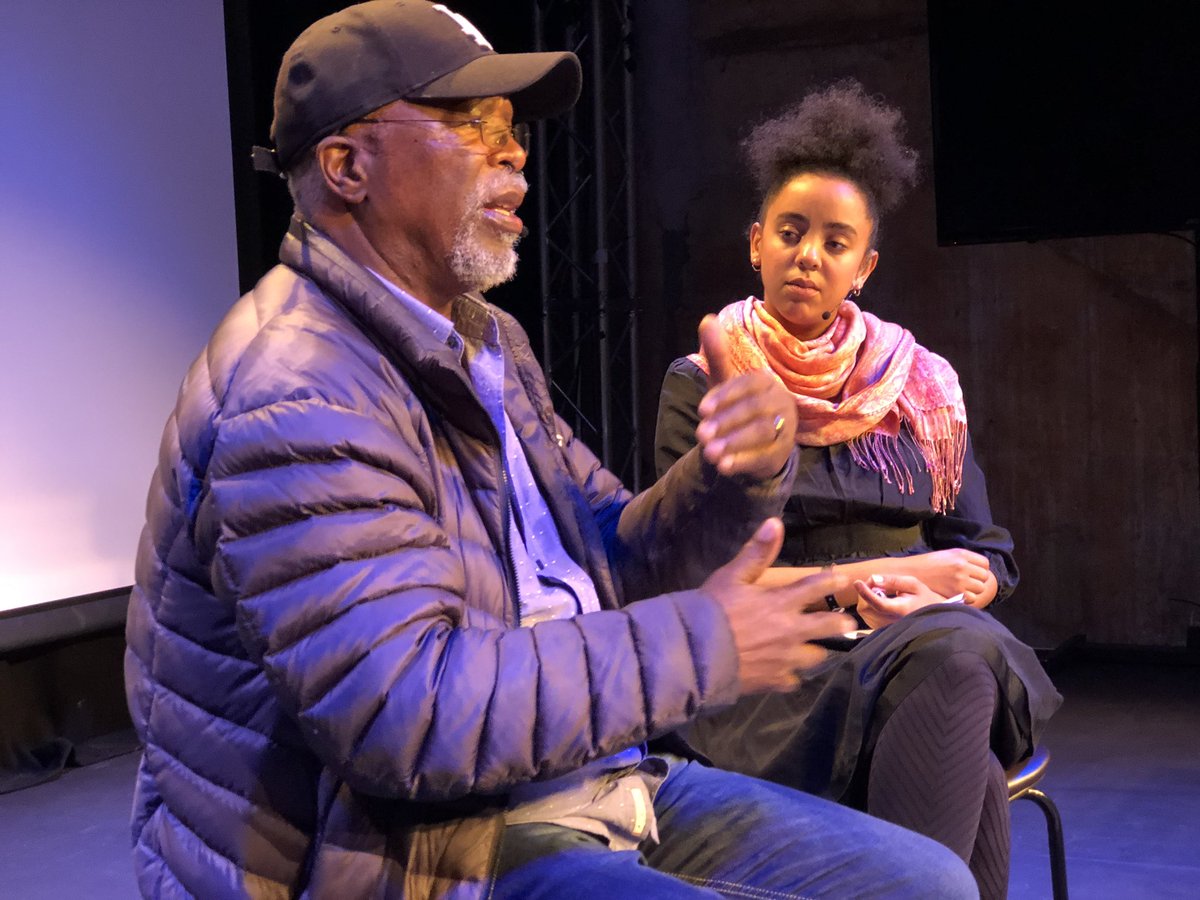HAYLEIGH EVANS of POPArt Theatre reflects on UMSEBENZI KA BRA SHAKES and working Brother Shakespeare’s words with a cast of 10 young South Africans
Photo credit: Zivanai Matangi
Prologue
Umsebenzi Ka Bra Shakes interrogates the use and relevance of Shakespeare, and indeed classic texts, for South African performers, storytellers, makers, learners and audiences. It explores Shakespeare within culture and language contexts, raising questions around violence, masculinity and representation.
This process-driven exploration that brings together a creative team from various backgrounds, fully embraces the less good idea; creating from words and stories borrowed from Shakespearian texts and hopefully allowing something that is neither a South Africanised adaptation nor a translation to emerge.
The Acts
Armed with an inverse idea of what not to make, a deep passion for language and a dream team of creatives drawn from 3 varied ensembles, we set out on a 15-day voyage of textual discovery that became Umsebenzi Ka Bra Shakes: For Once at The Centre for the Less Good Idea.
A firmest choice for this process was assembling the ensemble: 6 members of the Kwasha Theatre Company (The Market Theatre Laboratory’s resident company: Sibahle Mangena, Molatelo Maffa, Thulisile Nduvane, Aaliyah Matintela, Vusi Nkwenkwezi and Sinenhlanhla Mgeyi), 3 members of the Johannesburg Awakening Minds ensemble (Micheal Mazibuko, Lwazi Myeki and Bongani Dlhamini, who have been working Shakespeare with Dorothy Ann Gould for some years now) and Rachael Neary (who has been a collaborative partner on previous theatrical projects and is a new member of The Factory ensemble in London). So, 10 actors from different training backgrounds with entirely different relationships to the work in question. Our non-performing participants (ie. facilitators), were invited into the process based on exciting conversations in passing about language, context, Shakespeare and performance, and so Phala O. Phala and Christopher Thurman brought their exceptional skill and knowledge as their time would allow throughout the process.
Photo credit: Zivanai Matangi
From the word go, there was a spoken agreement amongst all participants to commit to embracing the opportunity presented by ‘finding the less good idea’. But it would be lying to say that I didn’t come with some ideas already neatly formed in my own head. I was certain there would be projections or some wildly interesting visual offering: a high- or low-tech solution for sur-titling in fringe theatre. I was fairly certain some sort of military aesthetic would find its way onto the stage: a mirror of the theme of violence I knew would emerge. I was fully prepared to tackle the subject of decolonising the curriculum; assuming attitudes on behalf of the cast based on my interaction with Shakespeare and performers over the past few years. High up on my personal agenda was questioning the ‘universal story’ – the very justification for Shakespeare’s unending relevance and continual imposition on us as scholars, actors and audiences. I’ve wanted to know since Grade 8 if there was really any merit in that, and since one cannot know anything ‘universally’ without engaging with other members of the universe, the starting point was discussion.
Each of the performers were asked to bring two prepared 3-5 minute texts: one Shakespearean and one alternative piece of text, in any format in any language, that they felt connected to. Before touching the texts, discussions began. Discussions largely around feelings:
How do we feel about Shakespeare the man? How do we feel about Shakespeare the work? What is our stance on classic texts? What has brought us to this process? Why are we here? How do we feel about English? About school? About drama? About tragedy? What work, as theatre makers, are we compelled to make? How does creative engagement influence our personal growth?
Photo credit: Stella Oliver
Photo credit: Stella Oliver
A large portion of my pre-conceived notions were shattered by the starting point. I was surprised to find a relatively playful and positive attitude toward classic texts. With the bulk of the cast being from a largely devising background, there was comfort and excitement around the opportunity to work with words and story that had been tried and tested. Furthermore, many cast members felt the texts were an entry point to connecting to the English language as a form of expression, as opposed to a means of survival. Where perhaps I thought the texts would be considered limiting, they were revealed to have the capacity to be expanding beyond what I had imagined for us as a creative team – working toward something that was now even further away.
Photo credit: Zivanai Matangi
There was nowhere to go but to get on the floor and play with the texts. We mixed them up, we played them against each other, we translated and re-translated them. We created soundscapes, we performed them in harmony. We played with relationships, we added and changed emotional intention. We scarcely spoke about the meaning of the words.
We continued to interrogate Shakespeare: the plays, popular narratives, emergent themes, our favourite adaptations, the relevance that remains. We discussed what might happen if we re-imagine the end of some of the stories. We went back into the discussion of language, we created an appropriate definition for the term ‘vernacular’ for our purposes. We created a ‘Shakespearian Vernacular’ for contemporary South African slang on a giant blackboard. We free-wrote. We went back to playing with the texts. We played with existing translations.
Photo credit: Stella Oliver
This was all in week one!
In week 2, we moved over to the Centre’s performance space (where the piece was ultimately to be performed) and a renewed sense of play took over. We came across some interesting props. We made use of the multiple balconies. We were given access to the costume store. We were given the freedom to take ownership of the space. We created several improvisations around our multiple discussions. We continued to experiment with the moments and questions we connected to in the previous week. We started to sense how the isolated texts could become a story because, halfway through, we were able to start drilling down to the themes that mattered to us.
Photo credit: Zivanai Matangi
This was the point at which I started to feel major pressure around the word ‘director’. The word implies a profound sense of responsibility for holding the cast as well as delivering a product, and an awareness started to rise that we were up on stage next week Friday and people were starting to buy tickets (to what???). The Centre team needed to know what costuming was needed. Should any props be sourced? Should extra lighting be hired? Where should the projector (yes, I was still sure I needed a projector) be placed? What were the sound requirements? All of these questions that I had no firm answers to because my understanding of finding the less good idea for this particular process had meant letting go of any singular vision.
Nonetheless, decisions had to be made. I would write things in my journal and on the back of pieces of rogue paper, or my hand for that matter. Throughout each day in process and lunch breaks, furious writing continued: about how to tackle the visual aspect, a clever idea for translation, how to craft the narrative, how to integrate our own Shakespeare vernac, how to not lose the moments of magic we had found. I sat down at the end of every day to make sense of these notes and, legible or not, most of them got struck through because they really didn’t seem that important. What if we were actually no further to finding the ‘product’ of Umsebenzi Ka Bra Shakes than we were on our very first day of exploration?
We forged on and went ahead with a publicity photoshoot. Here, as is evidenced by the images, we really really really played. We knew that from the following week, we would have to start giving shape – but for now, it was Friday and there was fun to be had.
Photo credit: Zivanai Matangi
Our last task for the week was to divide into gender groups (inspired by the theme of representation of women in the texts) and create the final improvised offers toward performance. From this, two songs and a sketch emerged. Though panic was high, working through the weekend was not an option. Because, as independent theatre makers, we don’t often have the privilege of making 9-5, it’s quite a thing to realise the exhaustion of creative output when you actually do. Rest after a 40-hour creative work week was required. Monday would roll around soon anyway.
During the weekend, we received the photoshoot images from Zivanai Matangi. There was something about the sense of play in the images that was incredibly attractive. The cast’s instinctual use of the space and their on-the-day wardrobe read beautifully in the images. A happy accident, really: the photoshoot inspired hard and fast decisions around the visual treatment of the ‘product’ and renewed a sense of trust in the process.
At the top of week 3, we sat down to reflect. What had emerged from the experimentations, presentations and improvisations – in part or in full – that we could actually use in front of an audience? The process of dramaturgy began on post-it notes: creating scenes and putting them in order, then re-ordering, shaping and cutting. We used moments we had loved. We polished what worked, we settled on marking and created a set from items that were useful for the selected pieces. We cut and re-integrated pieces. We literally stumbled on an ending. Our blackboard became an essential item for completing the space (though its contents were never used in the final piece) and spoke to the theme of Shakespeare’s enduring presence in the high school syllabus. Though super-pressurised and though the piece was still incomplete, it was incredibly helpful during this week to invite practitioners into the room for notes. We continued to refine as we saw what we were making for the first time with the inclusion of an audience lens.
As a facilitator (which is actually a preferable term when it comes to making in such a collective way), the game really started to become clear to me. The strongest theme of language and understanding – which is important when addressing Shakespeare as well as our lived experience as South Africans – stayed present throughout as a conversation with the audience: it was the key to invite the audience into the game that the cast were playing. Instead of reading a difficulty in understanding the language being spoken – be it Shakespearean English, Sepedi or isiZulu – as isolating, there is a shared experience in giving over to listening to the beauty of the spoken word and finding the meaning in intention: delivery and action. The whole game throughout the ‘product’ of Umsebenzi Ka Bra Shakes was exactly this, and this gave us as a group an immense clarity and power. We polished delivery, refined intention and breathed into preparing for our one and only performance.
And then, it was over so quickly. We presented the work ‘For Once’ at the Centre for the Less Good Idea on 9 August. We got a standing ovation from a diverse and generous audience. There was no note session afterward. Just a debrief (a first for me on an opening night).
Photo credit: Stella Oliver
This is a very special way to work. To be given the opportunity to really indulge in process, but then to understand that process and presentation don’t truly exist without one another. We could have stayed safe in the confines of the weeks of discovery and never forced an outcome, yet part of the joy and responsibility of making theatre is sharing outcomes of our explorations packaged as productions or entertainment. Is that not the whole point of what we do?
Conversely, there is something about the weighting of the length of the process versus the length of the run that allows the makers to fully indulge process. Certainly for me, as much as I loved the piece we finally made, ultimately it was the process that was incredibly enriching for me as a person and as a practitioner. Without a lengthy process, and with significantly less pressure on a product that need make a return, it was far easier to let go of the idea I might have had and give way to finding something that was important for all of us to say and do. Working in this way brought a renewed sense of freedom and trust in making and instinct.
As for what we actually made
(which, in the end, did not include any projections),
a full length video of performance is available for preview:
https://vimeo.com/354652616
THE EPILOGUE
There are multiple positive outcomes from this experience, the most important of which for me, was that each individual participant was enriched and inspired by the experience of working differently. Perhaps existing, ‘classic’ (and often rights-free) texts constitute a good and economical proposal as a starting point for future making.
Major thanks go to our partners and sponsors – The Centre for the Less Good Idea, The Shakespeare Society of South Africa, Johannesburg Awakening Minds and Dorothy Ann Gould, The Market Theatre Lab, Kwasha Drama Company and POPArt – for making this experience a reality.
Looking forward, there is a possibility that some of the cast members will be included in the upcoming Season 6 at the Centre for the Less Good Idea (the workshops of which ran concurrently to week 1 of our workshops) this October. As POPArt, we are also looking at the possibility of touring a scalable version of the work to schools as an introduction to Shakespeare in 2020.
On a personal note, my quest to interrogate the idea of the universal story sadly becomes palpable as I write this report: the emergent themes of perpetual violence and representation of women that came up in each of the cast’s selected texts are only too clear and present in our country’s recent news stories. I have no doubt that if we were still in the rehearsal room, with events unfolding around us as they have in South Africa over the last fortnight, the work we made would have had shifted substantially.
It’s interesting to think that the narrative hasn’t changed since the 1600s.








































